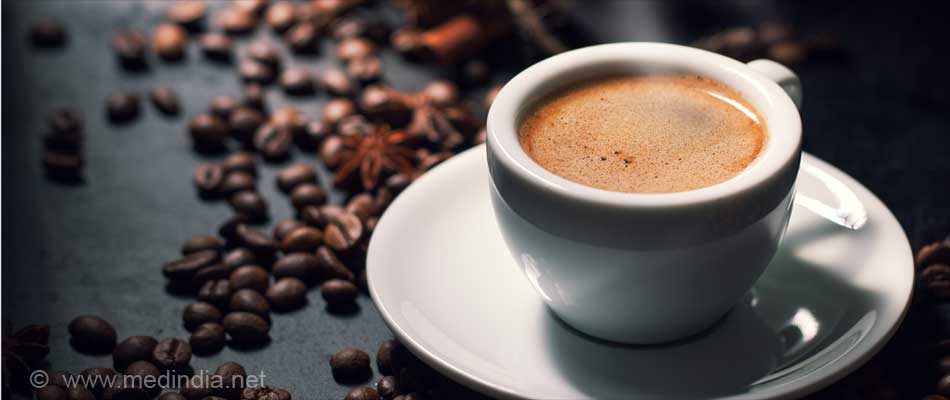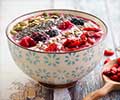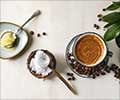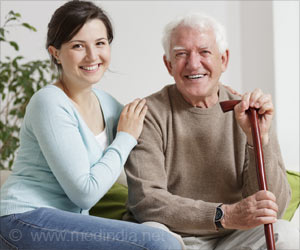- THE GLOBAL COFFEE CRISIS: A THREAT TO SUSTAINABLE DEVELOPMENT - (http://dev.ico.org/documents/globalcrisise.pdf)
- Harvesting Coffee Beans - (http://www.coffeeresearch.org/agriculture/harvesting.htm)
- Keisler BD, Armsey TD 2nd. Caffeine as an ergogenic aid. Curr Sports Med Rep. 2006 Jun;5(4):215-9.
- Vandenberghe K, Gillis N, Van Leemputte M, Van Hecke P, Vanstapel F, Hespel P. Caffeine counteracts the ergogenic action of muscle creatine loading. J Appl Physiol. 1996 Feb;80(2):452-7.
- Liston J. Breastfeeding and the use of recreational drugs--alcohol, caffeine, nicotine and marijuana. Breastfeed Rev. 1998 Aug;6(2):27-30.
- Wisborg K, Kesmodel U, Bech BH, Hedegaard M, Henriksen TB. Maternal consumption of coffee during pregnancy and stillbirth and infant death in first year of life: prospective study. BMJ. 2003 Feb 22;326(7386):420.
- Little RE, Weinberg CR. Risk factors for antepartum and intrapartum stillbirth. Am J Epidemiol 1993;137:1177–89. Bech BH, Autrup H, Nohr EA, Henriksen TB, Olsen J. Stillbirth and slow metabolizers of caffeine: comparison by genotypes. Int J Epidemiol. 2006 Aug;35(4):948-53. Epub 2006 Jun 16.
- Nobuo Momoi, Joseph P. Tinney, Li J. Liu, Huda Elshershari, Paul J. Hoffmann, John C. Ralphe, Bradley B. Keller, and Kimimasa Tobita. Modest maternal caffeine exposure affects developing embryonic cardiovascular function and growth. Am J Physiol Heart Circ Physiol 294: H2248-H2256, 2008. doi:10.1152/ajpheart.91469.2007
- Armstrong BG, McDonald AD, Sloan M. Cigarette, alcohol, and coffee consumption and spontaneous abortion. Am J Public Health. 1992 Jan;82(1):85-7.
- Mills, J.L. et al. Journal of the American Medical Association, 269, 593-597, 1993.
- Hatch EE, Bracken MB. Association of delayed conception with caffeine consumption. Am J Epidemiol. 1993 Dec 15;138(12):1082-92.
- Caan, B. et al. American Journal of Public Health, 88, 270-274, 1998.
- Ludvigsson JF, Ludvigsson J. Socio-economic determinants, maternal smoking and coffee consumption, and exclusive breastfeeding in 10205 children. Acta Paediatr. 2005 Sep;94(9):1310-9.
- Pelucchi C, Tavani A, La Vecchia C. Coffee and alcohol consumption and bladder cancer. Scand J Urol Nephrol Suppl. 2008 Sep;(218):37-44.
- Pizziol A, Tikhonoff V, Paleari CD, et al. Effects of caffeine on glucose tolerance: a placebo-controlled study. Eur J Clin Nutr. 1998;52:846-849.
- van Dam, RM et al. Coffee consumption and risk of type 2 diabetes - A systematic review. JAMA Volume: 294 Issue: 1 Pages: 97-104 Published: JUL 6 2005.
- Tan EK et al. Dose-dependent protective effect of coffee, tea, and smoking in Parkinson''s disease: a study in ethnic Chinese. J Neurol Sci. 2003 Dec 15;216(1):163-7.
About
Caffeine sensitivity decides if coffee is good or bad for you. However drinking coffee preferably without caffeine may be good for your health.
Coffee is perhaps one of the most widely- consumed drinks in the world and also one of the most intensely scrutinized beverage as far as lifestyle and health is concerned. At times, a cup of coffee is a healthy food and at other times it is the ‘Devil’s brew’.
Today, coffee is cultivated in about 80 countries ranging from America to Africa and Asia, with Brazil and Colombia being the two biggest producers. According to the International Coffee Organization, the worldwide production of coffee in 2009 was 120,613,000 bags (around 8 million metric tons). It is second to petroleum, in terms of international trading, giving earning opportunities to more than 125 million people globally. Coffee is popular indeed!

“The morning cup of coffee has an exhilaration about it which the cheering influence of the afternoon or evening cup of tea cannot be expected to reproduce,” wrote Oliver Wendell Holmes, Sr. – physician and one of the greatest 19th century writer – in his table-talk book ‘Over the Teacups’.
What is it that gives coffee its exhilaration factor? Well, it’s caffeine, or 1,3,7-trimethylxanthine, which is a pharmacologically important psychotropic alkaloid. Caffeine is not just confined to coffee, it occurs naturally in tea, cocoa, and is added to soft and energy drinks.
The amount of caffeine in a cup of coffee would vary depending upon the origin or composition of the coffee, the method of brewing and the strength of the brew.
So, how much coffee is too much? The American Dietetic Association’s ‘Complete food and nutrition guide’ recommends a maximum of 200-300 mg of caffeine per day. This translates to about two to three cups of coffee per day or five cups of tea or 10 tablets of some painkillers.
The amount of coffee you can tolerate depends on how sensitive you are to the caffeine in the coffee. Some people are more caffeine- sensitive than others. Caffeine sensitivity depends on the amount of caffeine you can tolerate, your physical condition, and also your overall stress and anxiety level. If you drink coffee regularly you may not notice the effects as quickly as the person who drinks an occasional cup. Whether you are a coffee addict or you drink coffee occasionally, and irrespective of your caffeine sensitivity, switching to decaffeinated coffee (decaf) may well serve the purpose without compromising your health.
A word about decaf coffee – University of Florida research study and other studies have shown that almost all decaffeinated coffee contain some measure of caffeine. Decaffeinated coffee is not the same as caffeine-free coffee.
If you are calorie-conscious, look into the ingredients that go into your coffee. That frappe and cappuccino or even that white chocolate mocha may be loaded with calories! Know your coffee to enjoy it completely.
| Here’s a quick reference guide on caffeine content in some of the popular beverages | |
| Percolated coffee (7 oz) | 140 mg |
| Drip (7 oz) | 115-175 mg |
| Espresso (1.5 to 2 oz) | 100 mg |
| Brewed (7 oz) | 80-135 mg |
| Instant (7 oz) | 65-100 mg |
| Decaf coffee, brewed (6 oz) | 5 mg |
| Decaf coffee, instant (6 oz) | 3 mg |
| Iced tea (12 oz) | 70 mg |
| Black tea (6 oz) | 70 mg |
| Green tea (6 oz) | 35 mg |
| Milk chocolate (1 oz) | 1-15 mg |
| Dark chocolate (1 oz) | 5-35 mg |
| [Source: EROWID - http://www.erowid.org/chemicals/caffeine/caffeine_info1.shtml] | |


















